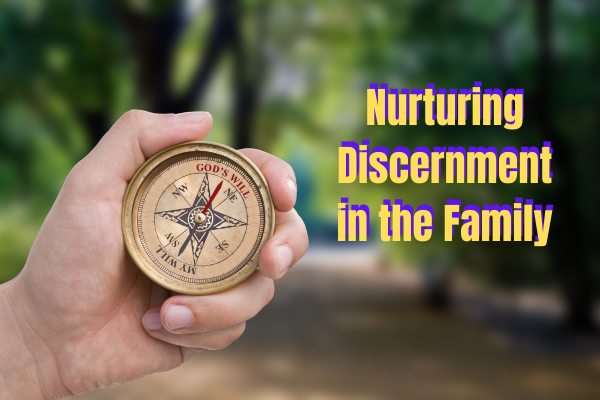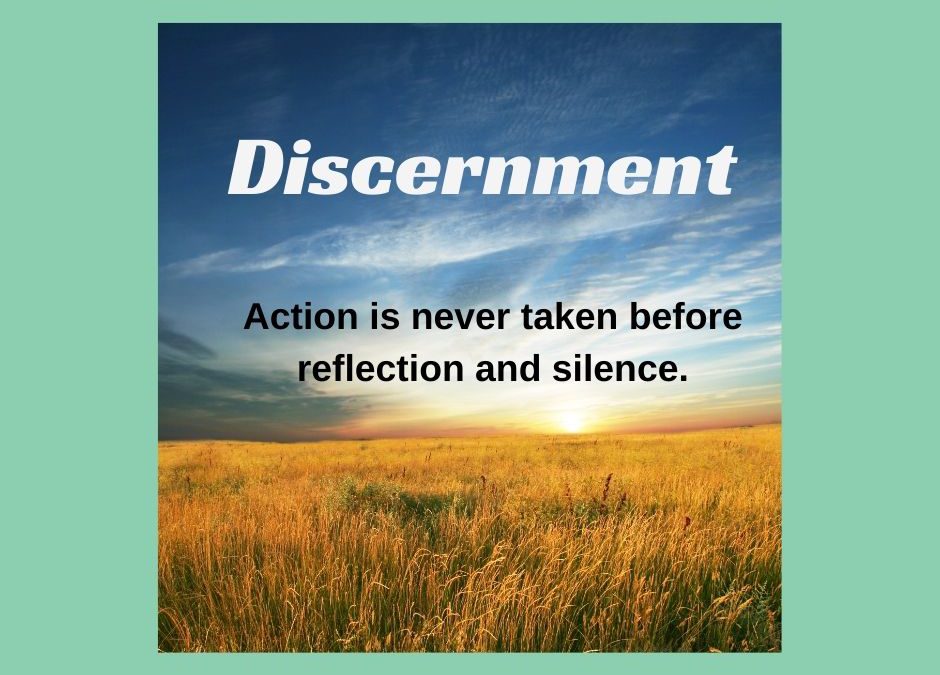
Nurturing Discernment: The Cornerstone of Family Well-being
Pursuing virtues is pivotal in shaping the journey toward happiness, harmony, and personal growth in the intricate tapestry of family life. Among these virtues, discernment stands out as a guiding light, illuminating the path toward making decisions that reflect the values and aspirations of the family unit.
As a family coach, I’m here to guide you on applying The Four C’s of Successful Families: clarity, communication, consistency, and community by embracing discernment in every facet of your family life.
Clarity: A Prerequisite for Discernment
Clarity is the cornerstone upon which discernment is built. In the context of family life, clarity means understanding your family’s values, goals, and aspirations. Before making important decisions, creating rules and consequences, or spending your time, it’s essential to be clear about what truly matters to your family.
To cultivate clarity within your family, consider engaging in regular family discussions. Explore your values and what you hope to achieve together. By defining your family’s core principles and having a mission and vision, you create a solid foundation for discerning the best choices in various aspects of life.
Communication: The Bridge to Understanding
Communication is the lifeblood of a discerning family. It’s not merely about talking but, more importantly, about actively listening and understanding each other. Encourage open and empathetic communication among family members. Ensure that everyone feels heard and valued.
As a family coach, I recommend setting aside regular, dedicated family time for meaningful conversations. Create an environment where everyone can share their thoughts and concerns without judgment. This practice fosters discernment and strengthens the bonds within your family.
Consistency: The Key to Building Trust
Consistency is the glue that holds the virtue of discernment together. It involves staying true to your family’s values and principles in good times and challenging moments. Consistency builds trust and a feeling of security among family members, making it easier to navigate essential decisions.
Establish family rituals and routines that reinforce your values to ensure consistency within your family. Whether it’s a weekly family dinner or a monthly outing, these traditions create a sense of stability and predictability. Consistency also means being reliable, following through on commitments, and teaching your children the importance of honoring their word.
Community: Strength in Togetherness
Community, both within your family and in a broader sense, plays a vital role in discernment. Your family is a community in itself, and the support and collaboration among its members are essential for making informed decisions. Furthermore, connecting with external communities can provide valuable insights and diverse perspectives.
Encourage your family to actively engage with their community, whether it’s through volunteering, participating in local events, or joining support groups. These interactions can broaden your horizons and introduce new viewpoints that enrich your discernment process.
Applying Discernment in Family Life
Now that we’ve highlighted the importance of clarity, communication, consistency, and community, let’s delve into how you can apply discernment in various aspects of your family life:
1. Education: Consider their unique strengths and interests when making educational choices for your children. Involve them in decision-making, allowing them to take ownership of their learning journey.
2. Health and Well-Being: Discernment is crucial in health-related decisions. Encourage a balanced approach to nutrition, exercise, and mental well-being. Listen to each family member’s needs and preferences.
3. Financial Planning: Make financial decisions that align with your family’s long-term goals and values. Create a budget together and teach your children about responsible money management.
4. Conflict Resolution: When conflicts arise, approach them with discernment. Engage in open and empathetic communication to understand each other’s perspectives. Seek resolutions that honor your family’s values.
5. Family Traditions: Continue to nurture your family’s unique traditions and rituals. These provide a sense of belonging and reinforce your shared values.
6. Parenting Choices: Apply discernment to your parenting style. Strive to balance guidance and independence, empowering your children to make responsible decisions.
In the tapestry of family life, discernment is the thread that weaves together the Four C’s of Successful Families: clarity, communication, consistency, and community. The virtues lead your family towards a fulfilling and harmonious journey. Embrace discernment as a way of life, and encourage its practice in all aspects of your family’s daily existence. By doing so, you’ll strengthen your family bonds and empower each member to make informed and heartfelt decisions that reflect your shared values and aspirations. Remember, as a family coach, I’m here to support you on this enriching journey of discernment and growth.
I invite you to sign up for our newsletter. It is a great way to get the Virtue of the Month and tips on relationships, parenting, and self-care. In addition, you’ll be the first to know about upcoming classes for successful families.
To sign up, visit the “Newsletter” section here on the website. Enter your email address, and you’ll receive our newsletter in your inbox on Wednesdays. I appreciate your interest in bringing out the best in your children and yourself. We look forward to keeping you informed through our newsletter!

